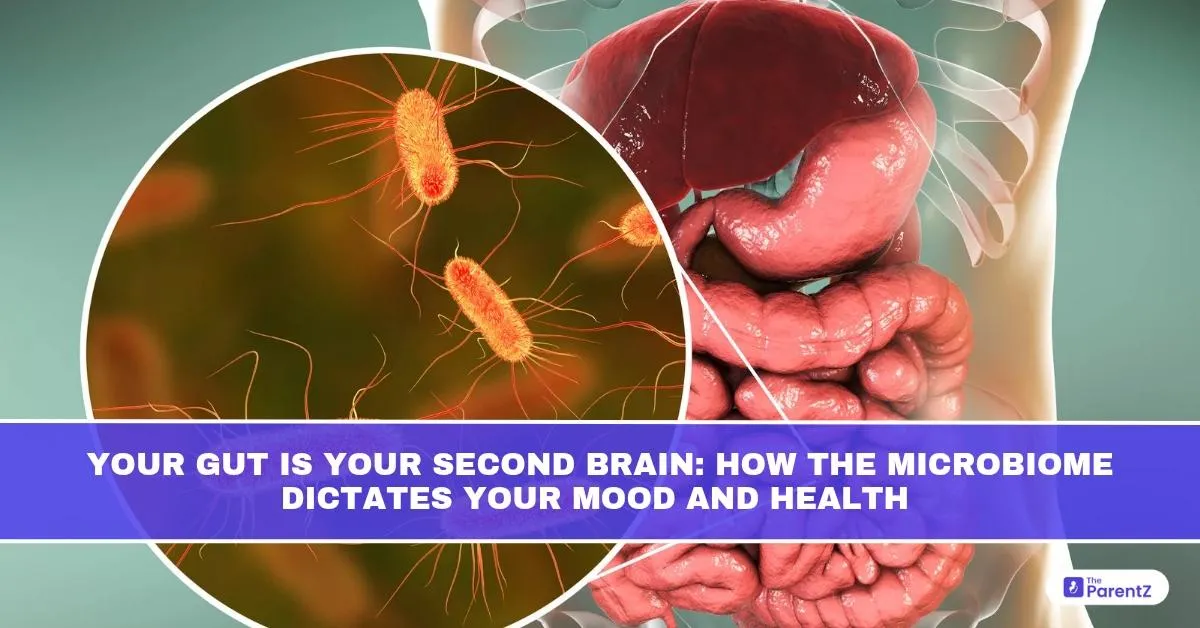Ever had “butterflies in your stomach” before a big exam or felt nauseous during stress? That’s not just emotion, it’s biology. Your gut and brain are deeply connected, and the trillions of microbes in your gut, collectively known as the microbiome, play a huge role in how you feel, think, and function.
Welcome to the world of the gut-brain axis, where your stomach literally talks to your mind. Modern science is finally catching up with ancient wisdom: healing your gut could mean healing your mood, immunity, and energy.
What is the Gut Microbiome?
Your gut microbiome is a complex ecosystem of bacteria, viruses, fungi, and other microbes living primarily in your intestines. These microbes:
- Help digest food
- Produce vitamins (like B12, K2)
- Regulate hormones
- Fight off harmful invaders
- And most importantly, communicate with your brain
When your microbiome is healthy, you feel balanced. But when it’s out of sync, it can affect not just your digestion but your mental health, immunity, and energy levels.
The Gut-Brain Axis: Your Internal Communication Highway
The gut-brain axis is the two-way communication system between your gut and central nervous system. This happens via:
- The vagus nerve – the main nerve connecting gut and brain
- Neurotransmitters – like serotonin, dopamine, and GABA (many of which are made in the gut!)
- Immune signals – inflammation from the gut can affect brain function
- Microbial metabolites – short-chain fatty acids from gut bacteria can reduce inflammation and boost mood
Fun Fact: Over 90% of your body’s serotonin (the feel-good hormone) is produced in your gut and not your brain!
Signs Your Gut May Be Affecting Your Mood
| Gut Issue | Mental Health Symptom |
| Bloating, gas, or constipation | Brain fog or low energy |
| Food sensitivities | Mood swings or irritability |
| Frequent antibiotics | Anxiety or depression |
| Sugar cravings | Fatigue or poor sleep |
| IBS or diarrhea | Panic attacks or poor focus |
Scientific Evidence: The Gut-Mood Connection
Key Studies:
- Nature Microbiology (2022) – Found certain gut bacteria linked directly with anxiety and depression symptoms.
- Harvard Health Review (2023) – Reported that people with diverse microbes were more resilient to stress and had lower cortisol levels.
- PubMed (PMID: 34190727) – Reviewed how probiotic and prebiotic supplementation improved mood and reduced mild-to-moderate depressive symptoms.
How to Heal Your Gut and Support Your Mental Health
1. Eat for Gut Diversity
Diversity in your gut = diversity on your plate.
Add more of:
- Fermented foods (curd, kanji, idli, kimchi, kefir)
- Fibre-rich fruits & vegetables (bananas, apples, spinach, carrots)
- Whole grains (millets, oats, barley)
- Prebiotics like garlic, onions, and flaxseeds
Limit:
- Processed sugars, refined carbs, and artificial sweeteners
- Excess alcohol and fried snacks
2. Consider Probiotics (but wisely)
Probiotics can help rebalance your gut flora, especially after antibiotics or digestive issues.
Beginner tips:
- Start with probiotic-rich foods.
- If opting for supplements, choose one with multiple strains like Lactobacillus and Bifidobacterium.
- Talk to your doctor or nutritionist for personalized recommendations.
3. Prioritize Sleep and Circadian Rhythm
Poor sleep disrupts gut bacteria and gut imbalance affects melatonin (your sleep hormone).
Try:
- Regular sleep-wake times
- No screens 1 hour before bed
- Warm chamomile tea or magnesium for relaxation
4. Manage Stress (Seriously)
Chronic stress shrinks gut lining and increases “leaky gut,” which leads to inflammation and mood swings.
Daily gut-calming practices:
- Breathwork (4-4-8 method)
- Journaling or emotional release
- Mindful eating (chew well, no distractions)
5. Move Your Body
Exercise stimulates good bacteria and supports gut motility.
Aim for:
- 30 minutes a day of walking, yoga, or strength training
- Bonus: outdoor movement gives your microbiome exposure to natural microbes!
Special Note for Women:
Hormonal changes (PMS, PCOS, menopause) impact your gut—and vice versa. A well-supported microbiome helps regulate estrogen metabolism, mood swings, and even period pain.
Final Thoughts: Your Mood Might Begin in Your Belly
If you’re struggling with low energy, anxiety, or constant fatigue, look beyond your mind—start with your gut. Healing your microbiome isn’t about taking a magic pill; it’s about nourishing your whole system from within.
Trust your gut. It’s smarter than you think.
And yes, it really is your second brain.





Be the first one to comment on this story.